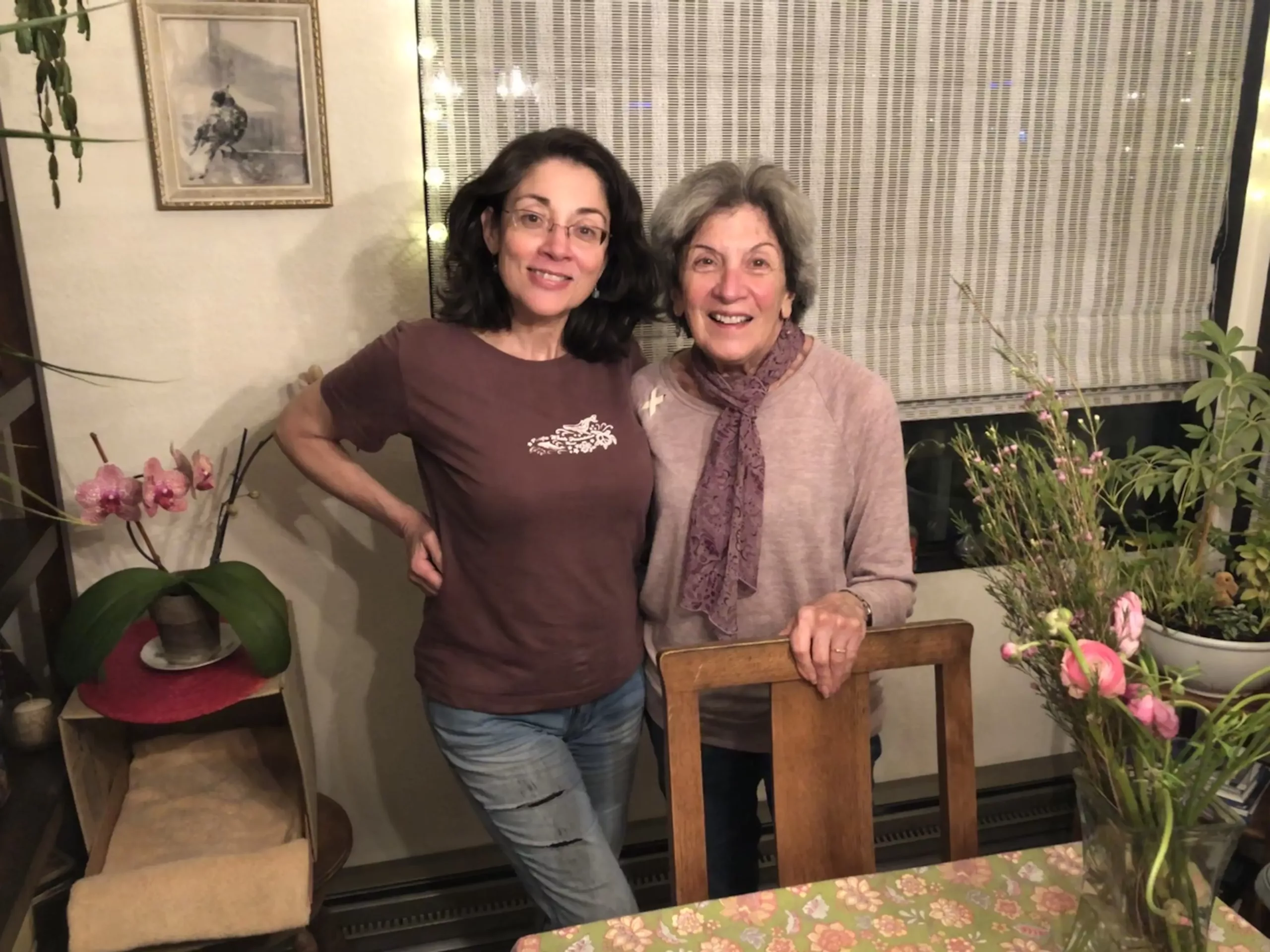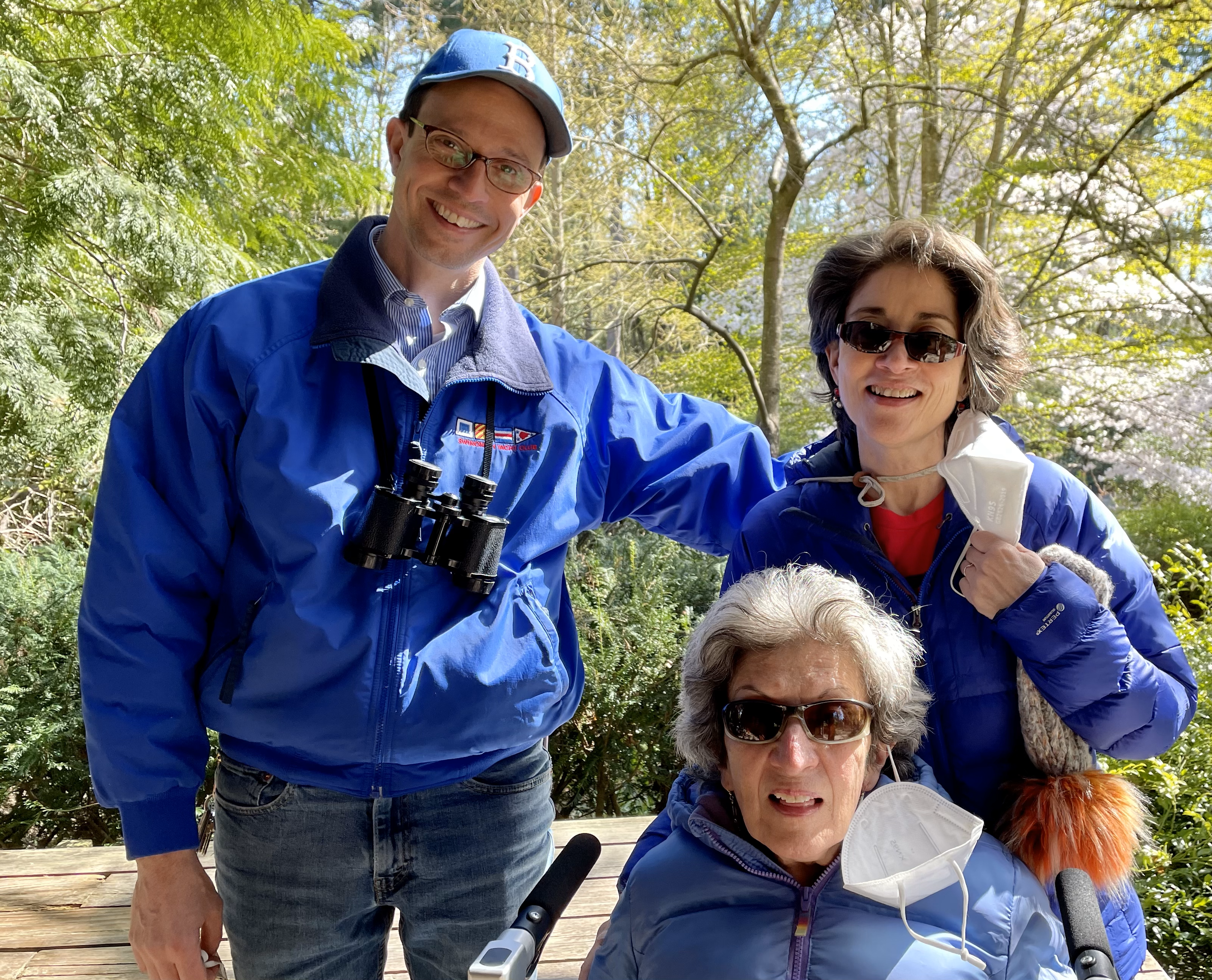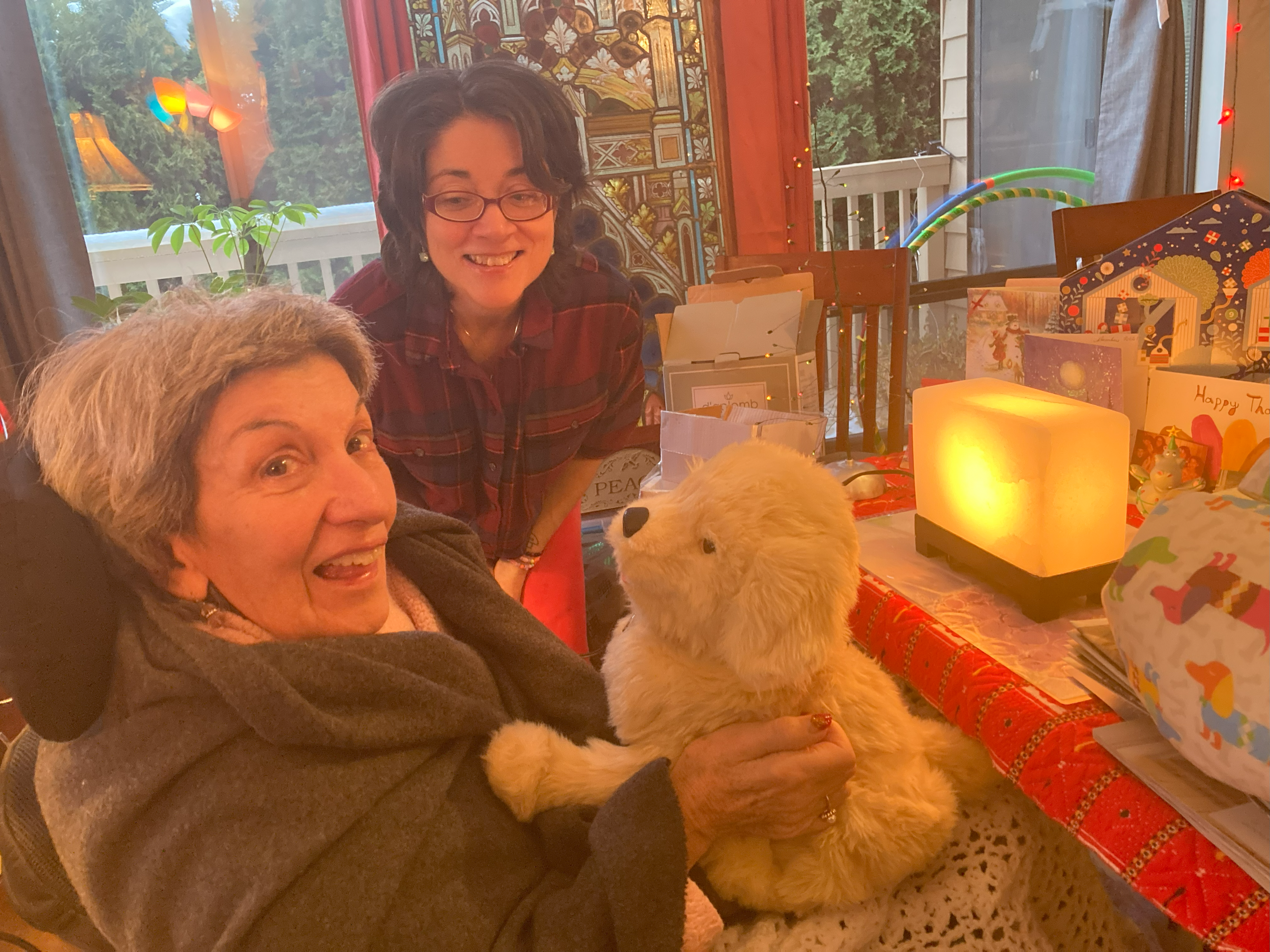Honoring a Latinx Caregiver’s Journey During Hispanic Heritage Month
Honoring a Latinx Caregiver’s Journey During Hispanic Heritage Month

During National Hispanic Heritage Month — September 15 to October 15 — the U.S. celebrates the contributions of more than 60 million Hispanic Americans, Latinos, Latinas, and Latinx-identifying people to our culture and society.
This is the story of Deborah, a Latinx woman who cared for her mother, who immigrated from Brazil. Deborah’s mother was diagnosed with ALS in January 2020. She was given 2-5 years to live and passed away on March 27, 2022.
What first led you to think something was wrong?
In 2018, I noticed my Mom was having some cognitive issues and was constantly clearing her throat. In 2019, she started slurring her speech, leading to several specialist’ visits. A neurologist tested her muscle strength and found some weakness—and she had trouble making some of the sounds he requested. The pulmonologist tested her lung capacity and diaphragm strength and found some diaphragm weakness and scarring in her lungs from aspirating food. Thinking the problem was neuromuscular, the neurologist sent us to the University of Washington Medical Center to see neurologists with more experience with neuromuscular diseases.
Getting a diagnosis was not easy. We visited multiple specialists in the UW system, but it’s very siloed, and the specialists we saw didn’t talk to one another or share results. We had to keep repeating ourselves to people who had trouble seeing the whole picture. Meanwhile, Mom became incontinent and continued to exhibit cognitive issues, breathlessness with exertion, and gradually worsening speech—although we could still understand her. In January 2020, after receiving the results of Mom’s first Electromyography (EMG), the UW neurologists concluded she had either PLS or ALS. We hoped for PLS because it’s a milder disease with a much longer prognosis. We switched to seeing the ALS Care Team at Virginia Mason (VM), where another neurologist did another EMG. The results and her examination led her to diagnose Mom with Bulbar ALS definitively.
What went through your head when your Mom was finally diagnosed?
When we got the diagnosis, there was relief and sadness. Because ALS is diagnosed primarily through elimination, it took over a year from first noticing symptoms to getting a formal diagnosis. While it was hard to hear Mom had ALS and only 2-5 years to live, I was relieved we finally knew what was going on and could do what was needed to help Mom, hopefully, slow down progression and live the best life possible.
What are some of the challenges that you’ve encountered?
There were many challenges:
- The long, arduous process of getting a diagnosis
- Doing the best for Mom despite her denial & firm faith/belief that she did not have ALS & that she would get better with prayer
- Mom didn’t want to let anyone outside the family know about the diagnosis, even though her close friends worried about her.
- Frontotemporal Dementia (FTD) compromised Mom’s decision-making. It made it challenging to get her to do what was best for her (e.g., not over-exercising, not eating foods that would choke her and be aspirated, getting enough sleep, etc.) FTD was also a blessing; I’m convinced it kept her happier during the disease process than she would have been.
- The COVID-19 Pandemic prevented Mom from visiting with friends until we decided seeing them (in a safe way) was more valuable than the risk. It was hard to get Mom not to wear a mask even though it made breathing more difficult for her. Also, I had planned to cruise and travel with Mom while she could still walk and enjoy travel, and those plans died with COVID.
- An improperly placed feeding tube at the end of 2020 caused Mom so much pain and stress that the disease began progressing more rapidly.
- It was challenging having to do copious research to advocate for Mom and her quality of life.
- There were family disputes over grief-based differences in opinion about what Mom could still do safely and what she could not.
Navigating the Challenges of ALS Care
- It was difficult caregiving for someone who became unable to do most of the activities of daily living. Watching my mother sacrifice her dignity and self-determination to this disease was hard, although I tried to preserve it while keeping her safe.
- Also, and significantly, there is a lack of caregiving training available through the medical system. I had to research, watch YouTube videos, and have friends who are nurses show me how to do certain things for Mom, e.g., use and care for the feeding tube, modify liquids and foods for easier swallowing while preserving eating pleasure, use a gait belt correctly for transferring, bathe Mom safely with a shower chair, use a suction toothbrush and suction out mucous, alter clothing to make them easier to put on and take off, help her get up and down stairs, get the right mask for her non-invasive breathing machine to ensure comfort and avoid air leakage (this took going through 5 different masks)
- There is a lack of ALS-knowledgeable and ALS-skilled home help.
- There were unexpected aspects of palliative sedation.
What’s something that you wish you had known before the diagnosis?
I wish I had known that there were certified ALS clinics in Seattle, that Mom’s lead physician could be a palliative care physician, and that Caregiver Action Network existed.
What has been the greatest source of support or help for you?
My most significant source of support, first and foremost, is my amazing life partner. I could not have cared for Mom the way I did without his help—which was essential to Mom’s continued quality of life. My extended family was also helpful. We had weekly Zoom calls with Mom’s extended family, during which they gave her a lot of love and attention, and she was so happy. Those in the family who are in the medical field also helped advocate for Mom’s care.
What did you miss most from before you were a caregiver?
What I missed most was alone time with my life partner, better sleep, being able to do whatever I wanted/felt like doing, and, of course, a healthy and vibrant Mom.
What’s something that you would like people who are not familiar with ALS to know?
I would like people to know that although generalizations apply to most people with ALS, each person’s experience is slightly different. Second, there are many ways to ensure your loved one with ALS has the best possible quality of life at every stage of this disease. ALS clinics are so important to people with ALS and their caregivers. Finally, no drugs or other cures are yet available that slow the progression or prevent death from ALS. ALS is a disease of little (and greater) deaths until the final death.
What tips do you have for caregivers of a loved one with a serious disease?
A tip I have for caregivers is that Palliative Care physicians are a crucial and infinitely valuable part of the care team for anyone with a chronic or fatal disease. Palliative sedation is mysterious even to the medical profession; they know the generalities, but the experience is unique to the individual. Also, hospice is not just for those who are imminently dying. It can be a big help in the last year(s) of life.
My other big tip—and really important—is that you should always be your or your loved one’s advocate in the medical system. Don’t take anything at face value. Doctors are human first. So, research, question, and challenge until you feel you’re getting the care that your loved one deserves.
How has your identity as Latinx impacted your role as a caregiver?
The Brazilian culture places a significant value on family, including extended family, especially mothers. There is no way I would not have stepped in to care for Mom and ensured she could stay at home throughout her disease process and until she passed.
Food is important to us, and Brazilian foods were part of Mom’s regular diet. Fortunately, we found some that were good when she could only eat soft, moist food. Other important parts of our culture are music and dancing—which are as essential as breathing. We played music daily, and I danced with Mom even when she could only chair dance.
Mom’s Catholic faith was strong and came from generations of matrilineal Catholics. Her faith sustained her, and I made sure she attended mass until she could no longer. I then arranged for her to receive pastoral visits from her priest and eucharistic ministers.
Our large, loving, extended Brazilian family was present in Mom’s life throughout her illness, even when she was no longer conscious during palliative sedation. They also made sure I had what I needed without having to work.
**If you are a caregiver for a loved one and would like to share your story, we would love to hear from you. Please lend your voice through the Caregivers-In-Action Insights Panel. You can also e-mail a photo (or photos) to media@caregiveraction.org.





